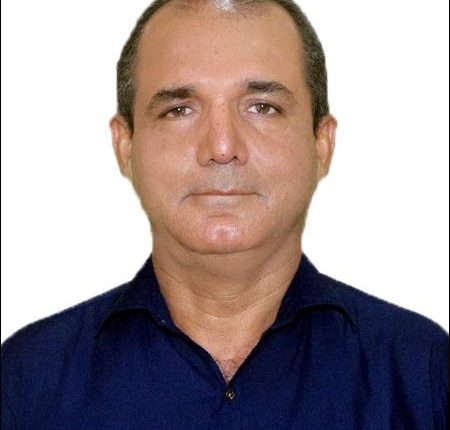By Qudrat Ullah
“There is but One God; His Name is Truth; He is the Creator, Fearless, without hatred, Timeless and Self-Existent.”
— Guru Granth Sahib, Japji Sahib (Mool Mantar)
In Nankana Sahib, the birthplace of Guru Nanak Dev Ji, the air once again carries the fragrance of devotion and the warmth of welcome. As Sikhs celebrate the 556th birth anniversary of the founder of the Sikh faith, thousands of Sikh pilgrims from across the world have arrived in Pakistan to pay homage at the soil where the Guru first preached his message of divine unity, compassion and equality.
This year’s celebrations are more than a religious observance; they represent a reaffirmation of Pakistan’s commitment to peace, pluralism, and hospitality. Under the leadership of Chief Minister Maryam Nawaz Sharif, the Punjab government has ensured that every visiting pilgrim experiences comfort, dignity and the generosity that define the spirit of Pakistan. From the beautification of gurdwaras and the establishment of medical and facilitation centres to comprehensive security arrangements and civic improvements, the preparations reflect not just administrative efficiency but a deep sense of reverence for the Sikh community.
The three-day festivities, beginning Nov 03, have turned Nankana Sahib into a city of light and colour. More than 30,000 pilgrims are expected to participate, including over 2,100 from India who will arrive via the Wagah border. The celebrations will begin with the sacred Akhand Paath and culminate in the main ceremony at Gurdwara Janam Asthan on Nov 05. The Nagar Kirtan procession, echoing with hymns and devotion, will fill the streets where Guru Nanak once walked.
Over 5,000 policemen have been deployed to facilitate the pilgrims. CCTV cameras and control rooms have been installed for round-the-clock monitoring, and the city has been made load-shedding-free. Streets are cleaned and decorated, gurdwaras washed with rose water and food arrangements supervised to ensure quality and hygiene. Hospitals in Lahore and Faisalabad have set up special wards for visiting devotees. In a remarkable show of inter-departmental coordination, every government department has joined hands to serve the guests of the Guru.
Provincial Minister for Minorities Affairs Sardar Ramesh Singh Arora, who has overseen preparations, noted that Chief Minister Maryam Nawaz Sharif has taken a personal interest in ensuring that Sikh pilgrims feel at home in Punjab. Minister for Health Kh Salman Rafiq highlighted that the Guru’s message is universal and that Muslims, too, revere him as a messenger of peace and humanity.
Indeed, the reverence for Guru Nanak Dev Ji extends far beyond the Sikh faith. His teachings of humility, service, and the oneness of God resonate deeply with the Islamic concept of Tawheed. Both faiths preach compassion, honesty, and respect for all human beings. The Guru’s words — “Recognize all mankind as one; the Divine Light shines in every heart” — echo the Quranic spirit of equality and mercy. In celebrating Guru Nanak’s birth, Pakistan celebrates values that unite rather than divide.
Nankana Sahib is not merely a religious destination; it is a symbol of shared spiritual heritage. The streets and courtyards where pilgrims gather today are the same places where Guru Nanak once spoke against injustice and reminded humankind of the equality of all souls. Pakistan’s hospitality toward visiting Sikhs reaffirms that message, showing that faith can build bridges where politics often erects walls.
Pakistan’s stewardship of Sikh heritage has grown stronger over the years. The country hosts many of Sikhism’s holiest sites, including Gurdwara Janam Asthan, Gurdwara Panja Sahib in Hasan Abdal and Kartarpur Corridor, which allows Indian Sikhs visa-free access to one of their most sacred shrines. These efforts demonstrate Pakistan’s respect for its religious diversity and its recognition of the historical bonds that transcend borders.
Under CM Maryam Nawaz Sharif’s leadership, Punjab’s policy toward religious minorities has taken a more inclusive and forward-looking direction. Her active participation in religious and cultural events of all faiths reflects a belief that Pakistan’s progress lies in unity and equality. The ongoing welfare initiatives, representation of minorities in provincial institutions and the upgrading of religious heritage sites are part of a broader vision of societal harmony. This inclusivity aligns closely with the founding ideals of Pakistan, articulated by Quaid-e-Azam Muhammad Ali Jinnah in his promise of freedom for all faiths.
The celebration of Guru Nanak’s birth anniversary has also become an important gesture of people-to-people diplomacy. Each year, when Sikh pilgrims from across the globe step onto Pakistani soil, they are greeted not as foreigners but as honoured guests. Smiles, garlands and open doors breathe warmth into distant hearts. This strong tradition of hospitality quietly strengthens cultural and spiritual ties between the people of Pakistan and the global Sikh community.
As hymns fill the air of Nankana Sahib and the sacred words of the Guru echo through its gurdwaras, the message of love and oneness seems more relevant than ever. At a time when the world faces division and distrust, the teachings of Guru Nanak Dev Ji remind us that humanity is one family under one Creator. His message calls for compassion over conflict, understanding over prejudice, and service over self.
“Where there is love, there is God.” — Guru Granth Sahib
In the land of the Guru, faith indeed finds its home. And this week, as Pakistan opens its heart to thousands of visiting Sikhs, that home feels a little larger, a little warmer and filled once again with the light of shared humanity. (The writer is a Lahore-based public policy analyst and can be reached at qudratu@gmail.com)

